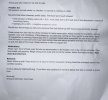I don’t post here much, but I am a longtime follower and have dived deep into threads over many years here and have learned so much. I am currently completely lost with the situation going on with my tortoise Smaug. It’s a long story but I feel leaving parts of it out wouldn’t give the full picture.
Poor Smaug had to have his penis amputated back on February 14th, what a sad Valentine’s Day for him. The prolapses that led to the amputation never made any sense. He had bloodwork done, x-rays, fecal, the works, and they couldn’t find any of the general causes for prolapse. It was assumed that it was likely a mating injury.
His first prolapse was in August last year he got tucked back in and got a purse stitch. He was isolated for months then in late October he prolapsed again. Got another purse stitch, but then prolapsed again the next day even with the stitch. They wanted to amputate at that time, but I wasn’t ready to give up so I had them remove the stitch that was keeping him from retracting again by that point, took him back home and worked with him, and he was able to retract himself.
He remained in isolation in doors all winter but then suddenly prolapsed on February 12th. This was after being isolated for four months straight. It made no sense. He was able to retract himself again after a couple hours but I was still very concerned, it shouldn’t have been happening again. Then the next day he prolapsed again, and was never able to retract it leading to the amputation on the 14th.
Anyway, it’s been about two months since surgery and he should be on the mend. In fact, the vet recommended keeping him isolated for only 10 days post surgery, and then he could finally rejoin the group but I was overly cautious and kept him isolated for an entire month and a half. He also had a full round of antibiotics (fortaz).
During that month and a half his energy never really came back up, but he was eating every day and we were doing daily soaks. About two weeks ago I tried putting him back with the group, hoping it would perk him up and reinvigorate him. It was pretty much more of the same. I wouldn’t describe him as lethargic but definitely low energy, but would always come over and eat. Always a good appetite.
It’s getting warm here so they are getting outside time most days, but then I have to put them back into their insulated shed at night. Well today I was running around busy so I didn’t get a chance to let them out to enjoy the weather until about three pm. When I did I found Smaug struggling to walk basically looking like he was swimming in the dirt, unable to lift his body up. I went to pick him up and he was extraordinarily hot to the touch. I took him outside and put him down but he still couldn’t move so I put him in his water dish and he drank so incredibly deeply. I left him sitting there for a few minutes to cool down but then he started wanting to get out and trying to walk, but was unable to.
I watched the camera footage in the shed, and he walked over to bask under the UVB light (Arcadia T5) around 1:30 he looked like he was walking pretty good. He splooted and basked for a little while then walked over to the corner where my CHE was on and just sat there for about an hour. That CHE wasn’t even supposed to be on, I’m mad at myself for that. Then on the camera, I can see him start to try to move and struggle to get away because I guess he was overheating and he wasn’t able to. There was lots of movement of him trying to basically swim through the dirt until I found him around three.
It was only a high of 80 today and my alarms are set to alert me if the shed temperature gets above 90. If that would’ve happened, I would’ve noticed that the CHE was on and was driving up the temperature. The ambient temperature in the shed was only 88 but it could very likely have been over 100 under that CHE with the ambient being so high. But the most baffling part is why he sat there and didn’t move when that area of the shed is 8 x 8. There is plenty of room to get away. I could understand overheating if he was stuck in a tiny space, but this was not the case.
I took him into the house, and he started walking again and even devoured a whole plate of food. I let him rest for a while but when I went back to check on him, he was unable to walk again so we went to the emergency vet. They confirmed that it looked like he overheated but I just could not imagine how a healthy tortoise would do what he did. He hasn’t seemed right for months now, so I had them do bloodwork.
Well, the blood work came back as only mild kidney elevation likely due to the heat stress but also alarmingly, he has hyperglycemia. I asked the vet what that means and couldn’t really get a good answer. So overall, I am just absolutely baffled why this even happened or what is even going on with him.
Ultimately I truly feel whatever was causing his prolapses was never found so the true problem was never addressed, whatever was happening then is likely still happening. To me how he overheated today makes no sense, I don’t know how a healthy tortoise would do that and his bloodwork showed he’s not healthy, but I honestly don’t know the full extent of what hyperglycemia means in a tortoise. All I found on Google is that it is ‘ an uncommon clinical abnormality in reptiles ‘.
Also, of note he’s had extremely strange mucous / jelly come out with his poops ever since the surgery. And at first I just figured it was healing in there and all the stress and trauma, but I found one of those type of poops underneath him just yesterday. Seems odd to be still like that two months after surgery. I also brought that up to the vet, but couldn’t get a satisfactory answer. He will be having a follow up with his primary vet, and they are very good board-certified veterinarians. But they couldn’t find anything when he was prolapsing so I don’t feel confident I’ll find answers this time either. He even had blood work before but I don’t remember anything alarming so I will definitely have to have them compare his bloodwork now versus his prior bloodwork.
I don’t know if I’ll find any answers from this post, but just hoping maybe to get some ideas. Really lost at this point. After everything my guy has been through, I would hate to lose him. I know this post is a lot, thank you for taking the time to read. If you have any ideas, please let me know.
Attached are his discharge papers and bloodwork.
Edited to add that the group he is in consists of 13 other red-footed tortoises besides himself and not a single one of them are exhibiting any issues so that helps rule out a lot of possibilities. It’s solely a problem with my one guy he is the outlier.
Poor Smaug had to have his penis amputated back on February 14th, what a sad Valentine’s Day for him. The prolapses that led to the amputation never made any sense. He had bloodwork done, x-rays, fecal, the works, and they couldn’t find any of the general causes for prolapse. It was assumed that it was likely a mating injury.
His first prolapse was in August last year he got tucked back in and got a purse stitch. He was isolated for months then in late October he prolapsed again. Got another purse stitch, but then prolapsed again the next day even with the stitch. They wanted to amputate at that time, but I wasn’t ready to give up so I had them remove the stitch that was keeping him from retracting again by that point, took him back home and worked with him, and he was able to retract himself.
He remained in isolation in doors all winter but then suddenly prolapsed on February 12th. This was after being isolated for four months straight. It made no sense. He was able to retract himself again after a couple hours but I was still very concerned, it shouldn’t have been happening again. Then the next day he prolapsed again, and was never able to retract it leading to the amputation on the 14th.
Anyway, it’s been about two months since surgery and he should be on the mend. In fact, the vet recommended keeping him isolated for only 10 days post surgery, and then he could finally rejoin the group but I was overly cautious and kept him isolated for an entire month and a half. He also had a full round of antibiotics (fortaz).
During that month and a half his energy never really came back up, but he was eating every day and we were doing daily soaks. About two weeks ago I tried putting him back with the group, hoping it would perk him up and reinvigorate him. It was pretty much more of the same. I wouldn’t describe him as lethargic but definitely low energy, but would always come over and eat. Always a good appetite.
It’s getting warm here so they are getting outside time most days, but then I have to put them back into their insulated shed at night. Well today I was running around busy so I didn’t get a chance to let them out to enjoy the weather until about three pm. When I did I found Smaug struggling to walk basically looking like he was swimming in the dirt, unable to lift his body up. I went to pick him up and he was extraordinarily hot to the touch. I took him outside and put him down but he still couldn’t move so I put him in his water dish and he drank so incredibly deeply. I left him sitting there for a few minutes to cool down but then he started wanting to get out and trying to walk, but was unable to.
I watched the camera footage in the shed, and he walked over to bask under the UVB light (Arcadia T5) around 1:30 he looked like he was walking pretty good. He splooted and basked for a little while then walked over to the corner where my CHE was on and just sat there for about an hour. That CHE wasn’t even supposed to be on, I’m mad at myself for that. Then on the camera, I can see him start to try to move and struggle to get away because I guess he was overheating and he wasn’t able to. There was lots of movement of him trying to basically swim through the dirt until I found him around three.
It was only a high of 80 today and my alarms are set to alert me if the shed temperature gets above 90. If that would’ve happened, I would’ve noticed that the CHE was on and was driving up the temperature. The ambient temperature in the shed was only 88 but it could very likely have been over 100 under that CHE with the ambient being so high. But the most baffling part is why he sat there and didn’t move when that area of the shed is 8 x 8. There is plenty of room to get away. I could understand overheating if he was stuck in a tiny space, but this was not the case.
I took him into the house, and he started walking again and even devoured a whole plate of food. I let him rest for a while but when I went back to check on him, he was unable to walk again so we went to the emergency vet. They confirmed that it looked like he overheated but I just could not imagine how a healthy tortoise would do what he did. He hasn’t seemed right for months now, so I had them do bloodwork.
Well, the blood work came back as only mild kidney elevation likely due to the heat stress but also alarmingly, he has hyperglycemia. I asked the vet what that means and couldn’t really get a good answer. So overall, I am just absolutely baffled why this even happened or what is even going on with him.
Ultimately I truly feel whatever was causing his prolapses was never found so the true problem was never addressed, whatever was happening then is likely still happening. To me how he overheated today makes no sense, I don’t know how a healthy tortoise would do that and his bloodwork showed he’s not healthy, but I honestly don’t know the full extent of what hyperglycemia means in a tortoise. All I found on Google is that it is ‘ an uncommon clinical abnormality in reptiles ‘.
Also, of note he’s had extremely strange mucous / jelly come out with his poops ever since the surgery. And at first I just figured it was healing in there and all the stress and trauma, but I found one of those type of poops underneath him just yesterday. Seems odd to be still like that two months after surgery. I also brought that up to the vet, but couldn’t get a satisfactory answer. He will be having a follow up with his primary vet, and they are very good board-certified veterinarians. But they couldn’t find anything when he was prolapsing so I don’t feel confident I’ll find answers this time either. He even had blood work before but I don’t remember anything alarming so I will definitely have to have them compare his bloodwork now versus his prior bloodwork.
I don’t know if I’ll find any answers from this post, but just hoping maybe to get some ideas. Really lost at this point. After everything my guy has been through, I would hate to lose him. I know this post is a lot, thank you for taking the time to read. If you have any ideas, please let me know.
Attached are his discharge papers and bloodwork.
Edited to add that the group he is in consists of 13 other red-footed tortoises besides himself and not a single one of them are exhibiting any issues so that helps rule out a lot of possibilities. It’s solely a problem with my one guy he is the outlier.
Attachments
Last edited:



